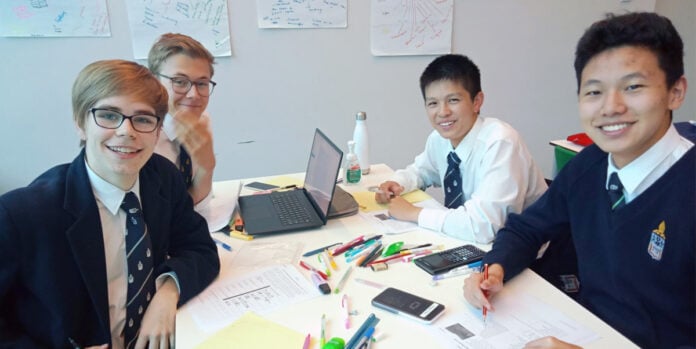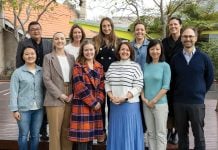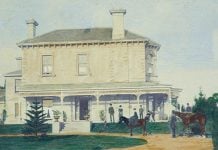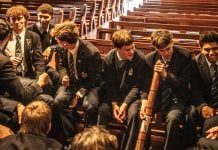The Olympics remain as fascinating in the classroom as they are in the stadium. These are just some of the ways the Games have been part of our curriculum.
Debating Olympic values
Olympic ideas engaged our School debaters throughout the 1990s against the backdrop of the Barcelona and Atlanta Games. In 1992, Bruce House took out the Junior Competition in the House debating against Morris with the argument: “The media puts too much pressure on our Olympic athletes”.
Four years later, Morris entered the House competition hungry for a win, taking on Deakin House to debate: “The Olympics are a farce”. However the Deakin team of Robin Gough, Perry Hertzfeld and Rob Feiner emerged victorious, claiming the title for the second year in a row.
A visit to Olympia
The 1984 Classics tour of Italy and Greece happened to coincide with an Olympic year, and students had the once-in-a-lifetime chance to visit Olympia the day after the Olympic torch had been lit. Led by Peter Mountford, the group of ten adults and nine children also visited Naples, Rome, Athens and Crete.
“The previous day the Olympic torch had been lit and the site had been closed by the local mayor in protest at American commercialism. The children, of course, had a race down the famous track.”
Peter Mountford, teacher, The Melburnian, 1984
Going to the Games
The 1956 Melbourne Games caused some disruption to the School’s activities, but there were advantages too.
Two hundred and ten boys and members of the staff were privileged to see the Opening Ceremony of the Olympic Games on 22nd November 1956. This included boarders from across the School. Special trams took the parties on that day and again on Wednesday, 28th November, when a program of field and track events was held.
Jim Cousins (OM 1961), a boarder at Grimwade House during the Olympic year, remembers: “For the 1956 Melbourne Olympics, the School took tickets at every event so that the boarders could attend. ‘Who wants to go today?’ we would be asked. I attended the opening and closing ceremonies and many other events. I remember sitting by the big cauldron and you could almost touch Ron Clarke!” (Grimwade House: 100 Years Young, 2018)
Writing the Olympics
Many student editors of The Melburnian have gone on to impressive writing careers. In the 1950s, two wrote fine editorials on Olympic themes.
John Dowsett (OM 1952) discussed the loss of true values in sport. “Within a lifetime, the Games have developed into an intergenerational struggle for supremacy, with political issues at stake,” he wrote. “Too many of us regard winning as all important, forgetting that there are lessons to be learnt from defeat as well as from victory.”
Inspired by Baron Pierre de Coubertin, who believed the Olympics would teach ideals of noble and sportsmanlike competition, Dux of the School Brian Smith (OM 1956) wrote on the link between sport and education.
“If, when we win, we can realise that our opponent deserves just as much praise for his unsuccessful, but no less earnest, attempt to win, and, if when we lose, we can feel satisfied that we have tried as hard as we could but were not good enough, we shall be reaching towards Baron de Coubertin’s ideal and shall, ourselves, have experienced the pleasure of competing nobly,” Smith wrote.
An Olympics of the mind
Olympic competition is not always confined to the sporting field. Melbourne Grammar first entered the Academic Olympiad in 2015, and just a year later, School team Martin Lee, Tom Ryan, Hamish Self and Max Zhang won the Australian Computational Linguistics Olympiad (OzCLO). This team went on to place fourth in the world competing in India, and Max Zhang won an individual gold medal after coming fourth amongst 173 competitors.
A team of four Melbourne Grammar School students, Will Metzke, William Flintoft, Angus Cha and Kelvin Cao, won the OzCLO championship again this year. They will now go on to represent Australia at the International Linguistics Olympiad to be held in July 2021. You can read more about this achievement here.
Melbourne Grammar students also regularly compete in the Physics and Mathematics Olympiads. Outside a School team, Lawrence Ip and Frank Calegari were selected to attend the International Mathematics Olympiad in 1992 in Moscow, where Calegari won bronze. Later, at the 1996 Physics Olympiad, Ben Toner also won bronze.



